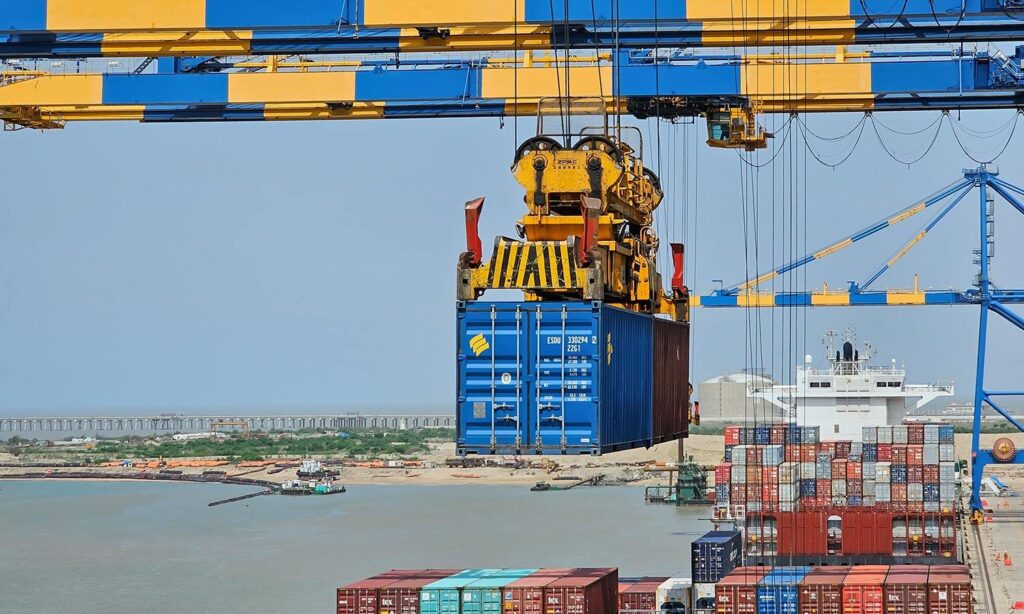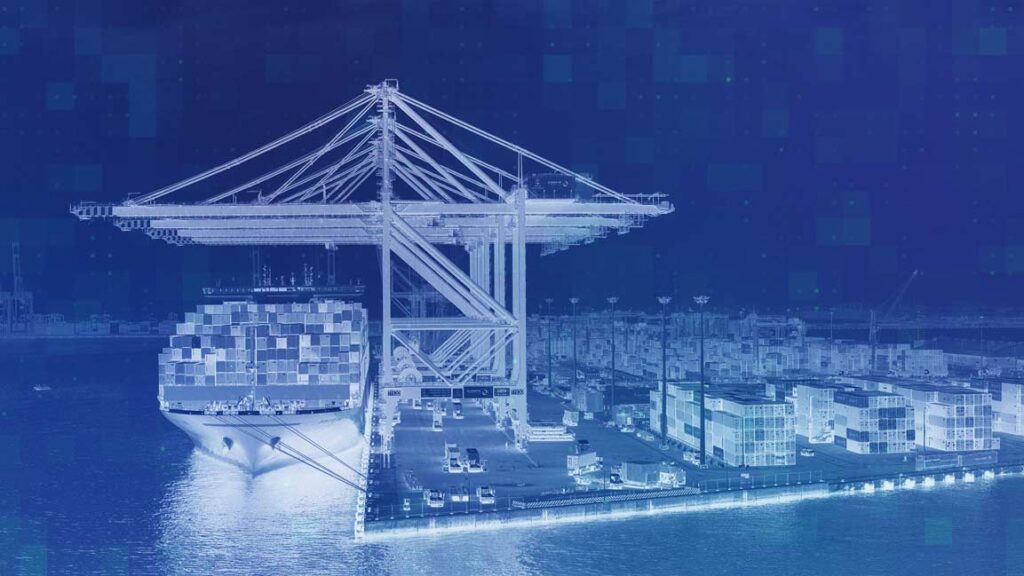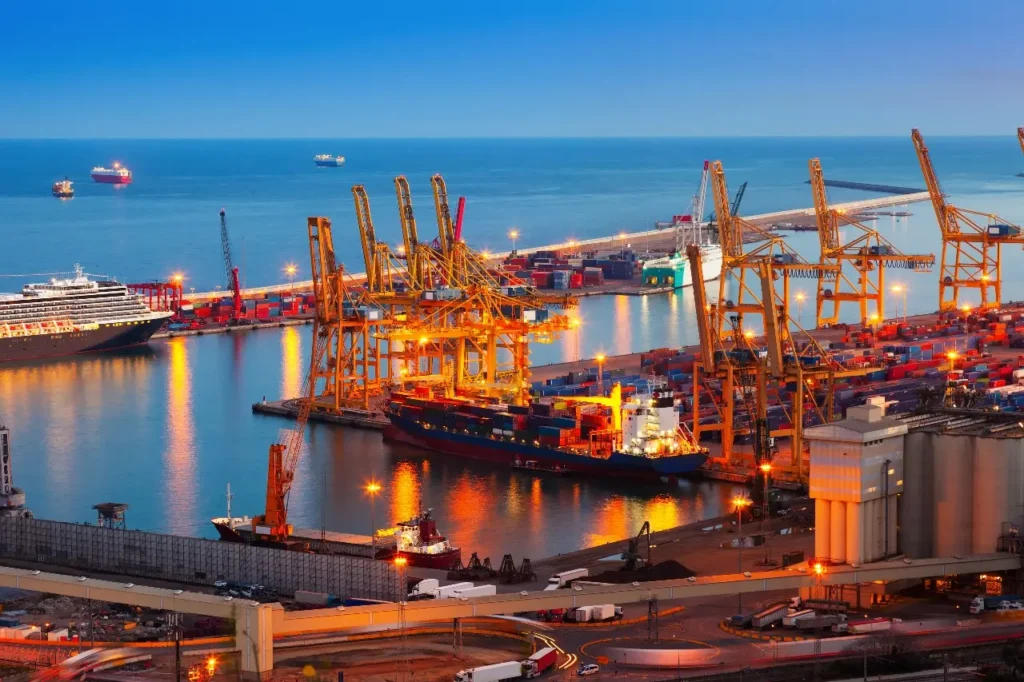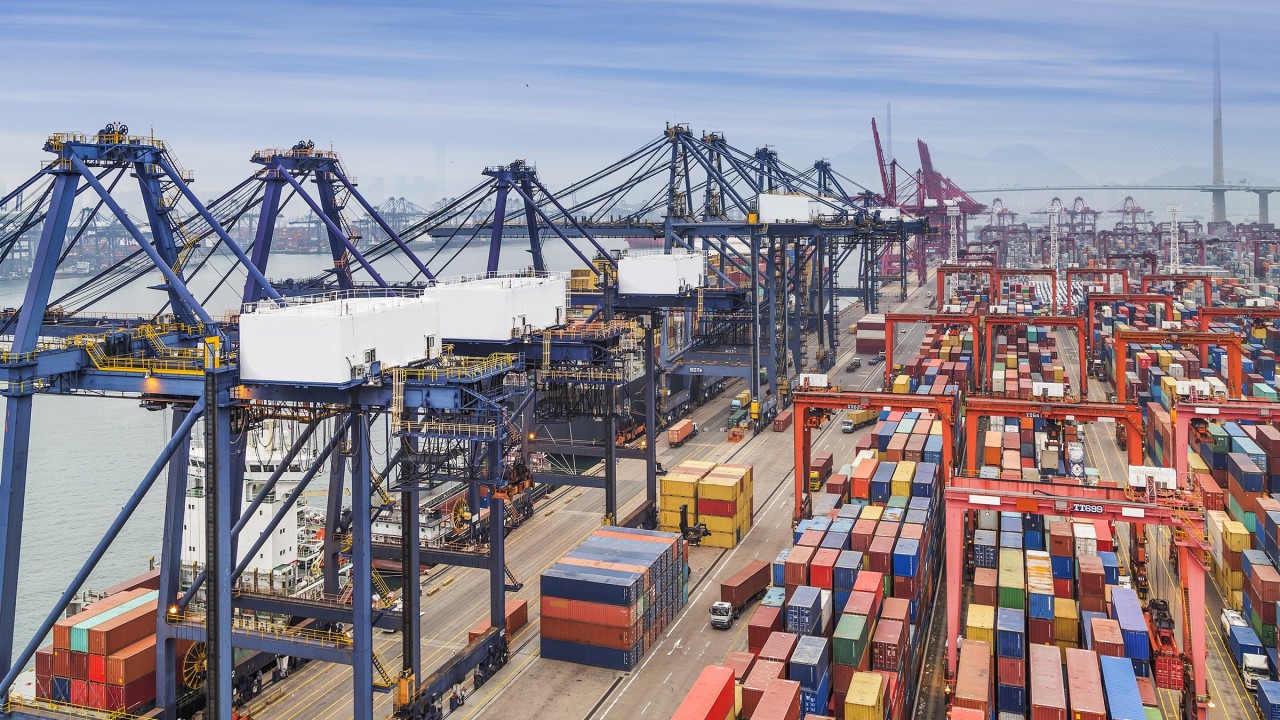In recent years, the ports in the Gulf region have become some of the most important hubs for global trade and logistics. These ports are no longer just places where ships dock to load and unload goods. Instead, they are evolving into smart, high-tech centers that help shape how products move around the world.
With their strategic location between Asia, Africa, and Europe, Gulf ports are playing a bigger role than ever in connecting different markets. This article explains how these ports have grown in importance, what makes them special, and why they matter so much for global trade today.
The Strategic Location of Gulf Ports
One of the biggest reasons Gulf ports are so important is where they are on the map. The Gulf region sits right at the crossroads of many major trade routes. Ships traveling between the East and West often pass through or near these ports. This makes the Gulf a natural hub for shipping companies.
For example, the ports of Dubai, Jebel Ali, Abu Dhabi, Salalah, and Sohar are located close to key shipping lanes such as the Strait of Hormuz and the Suez Canal. This means goods can quickly move between Asia, Europe, and Africa through these ports. Their position cuts down travel time and shipping costs, making trade faster and cheaper.
Advanced Infrastructure and Technology

Another reason Gulf ports stand out is their modern infrastructure. Many of these ports have invested heavily in advanced technology and facilities. This includes automated cranes, smart cargo handling systems, and state-of-the-art storage solutions. These improvements help speed up the loading and unloading of ships and reduce delays.
For example, the Jebel Ali Port in Dubai is one of the largest and most technologically advanced ports in the world. It uses automation and robotics to handle containers efficiently. This allows the port to process millions of containers every year, keeping global supply chains moving smoothly.
Technology also helps ports track shipments in real-time, improving transparency and security. Smart systems reduce human error and speed up customs procedures, making it easier for goods to pass through quickly.
Economic Growth and Job Creation
The growth of Gulf ports is also driving economic development in the region. Ports create thousands of jobs in areas like shipping, logistics, warehousing, and transportation. This helps support local communities and contributes to the broader economy.
Many Gulf countries are working hard to diversify their economies beyond oil. Developing world-class ports and logistics services is part of this plan. These ports attract global companies to invest, bringing more business and creating new opportunities.
For example, Saudi Arabia’s King Abdullah Port has become a major gateway for trade, creating thousands of jobs and supporting local industries. Similarly, Oman’s Port of Salalah has grown rapidly and now serves as a key link in global supply chains.
Boosting Regional and Global Trade
Gulf ports are not only important for their own countries but also for regional trade. They serve as gateways for goods moving between the Gulf Cooperation Council (GCC) countries and the rest of the world. This helps strengthen trade ties within the region and beyond.
Moreover, many Gulf ports act as transshipment hubs. This means they receive large shipments and then redistribute smaller shipments to other destinations. This role helps increase trade efficiency by reducing shipping times and costs.
For instance, Dubai’s Jebel Ali Port handles goods for hundreds of countries, acting as a distribution center for the entire Middle East. This makes it easier for businesses around the world to access regional markets and consumers.
Adapting to Global Challenges

The global trade and logistics industry faces many challenges, including supply chain disruptions, rising shipping costs, and environmental concerns. Gulf ports are adapting to these changes by embracing innovation and sustainability.
Many ports are investing in green technologies such as solar energy, electric cranes, and cleaner fuels. These efforts help reduce pollution and make port operations more sustainable.
Additionally, Gulf ports are expanding their capacity to handle growing demand. They are building new terminals and improving infrastructure to accommodate larger ships and more cargo. This helps prevent bottlenecks and keeps trade flowing even in tough times.
For example, Abu Dhabi Ports is developing the Khalifa Port with a focus on sustainability and smart technology. This port aims to become a model for green logistics in the region.
Partnerships and International Cooperation
Gulf ports are also building strong partnerships with international shipping companies, logistics providers, and governments. These collaborations help improve services, share knowledge, and promote innovation.
Many Gulf ports have agreements with major global players like Maersk, CMA CGM, and DP World. These partnerships allow ports to offer better routes, faster services, and more reliable connections to customers worldwide.
Such cooperation also supports the development of free trade zones and logistics parks near ports. These zones provide tax benefits and simplified regulations to attract global businesses. This creates an ecosystem that supports efficient trade and investment.

Looking Ahead: The Future of Gulf Ports
The future looks bright for Gulf ports as they continue to expand and modernize. The growing global demand for faster and more reliable shipping means these ports will remain vital players in global trade.
In addition, the Gulf region’s focus on economic diversification will likely lead to more investments in logistics, infrastructure, and technology. This will further enhance the region’s position as a global trade hub.
Ports in the Gulf are also expected to play a key role in the development of new trade routes, such as the Belt and Road Initiative connecting Asia to Europe. Their ability to connect markets across continents will help shape the future of global commerce.
Conclusion
Gulf ports have grown from simple docking points into vital centers of global trade and logistics. Their strategic location, modern infrastructure, economic impact, and focus on innovation make them crucial in the global supply chain.
As the world’s economy becomes more interconnected, the role of Gulf ports will only increase. Their ability to adapt to new challenges and opportunities will help shape the future of global trade for years to come.
Also read: How Gulf Countries Are Pioneering Digital Transformation



